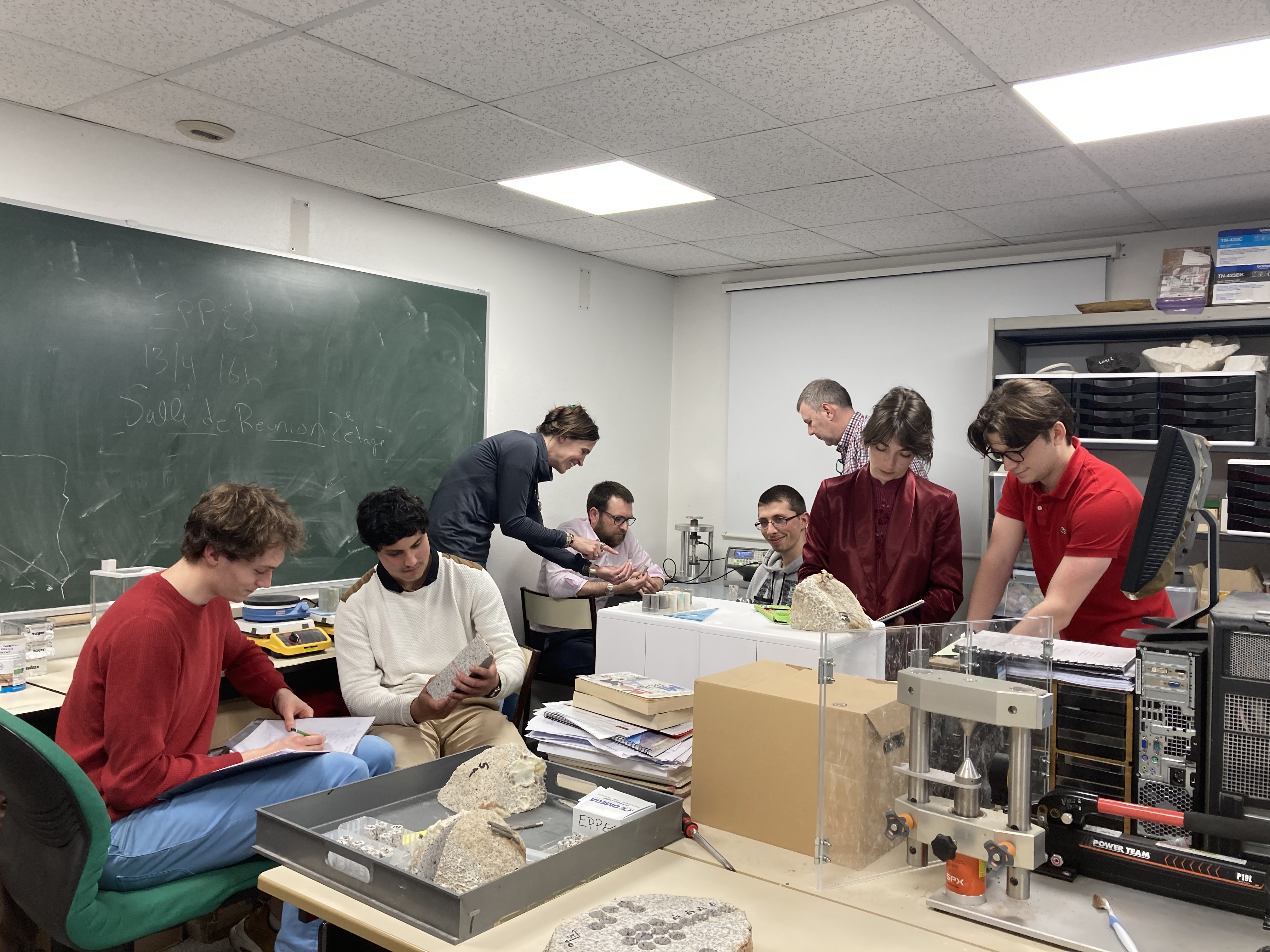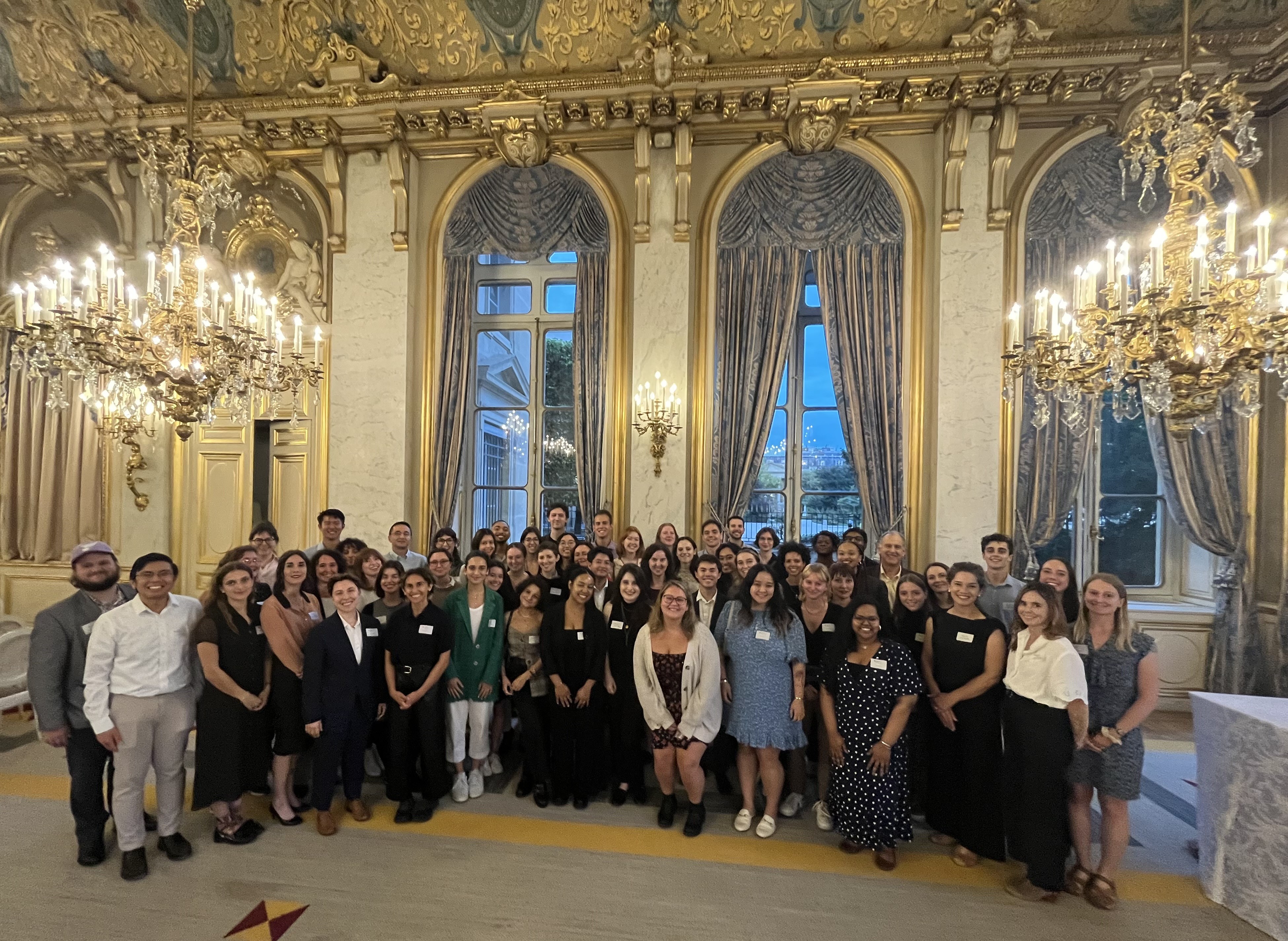Fulbright Award for Research in Eastern France (Grand Est)
France
Number of recipients
In addition to being a prestigious academic exchange program, the Fulbright Program is designed to expand and strengthen relationships between the people of the United States and citizens of other nations and to promote international understanding and cooperation. To support this mission, Fulbright Scholars may be asked to give public talks, mentor students, and otherwise engage with the host community, in addition to their primary activities.
Conduct research at any university or research center in the Grand Est region of France. Major cities include: Strasbourg, Mulhouse, Reims, Metz, Nancy, Troyes, Châlons-en-Champagne.
The region is well-known for its strong emphasis on research and innovation. The University of Strasbourg is one of the few universities to have been awarded the competitive “Initiatives of Excellence” label from the French government. The University of Lorraine and other institutions of higher education and research make up a prestigious I-SITE (nationally-funded research cluster) with an overall focus on how engineering can address major social and economic challenges.

Universities or research centers in the French region of Grand Est.
For a map of Grand Est, see the following link. For more information about Grand Est, see the Regional Council website and this short video (in English). Grantees are expected to reside in Grand Est for the duration of the award.
Grand Est is home to champagne and other famous wines, and is known for its local cuisine, natural beauty (mountain ranges and forests), sites of historical importance (including Reims Cathedral and First World War memorials in Verdun), museums, and charming timbered houses. Grand Est is the only part of France to border four European countries: Germany, Switzerland, Belgium, and Luxembourg.
Research projects that focus on digital, industrial, environmental/energy transition, and health – areas of great potential for development in the region – are particularly appreciated.
For more information on Grand Est’s strengths in research, see the Regional Council website (in English).
All applicants must meet the Program eligibility requirements (click to review the requirements).
Candidates having difficulty obtaining an affiliation may contact the Fulbright Commission for assistance: Charlotte Goodwin at cgoodwin@fulbright-france.org.
Applicants at the postdoctoral level are welcome to apply.
You may be asked to participate in an interview as part of the in-country selection process.
Charlotte Goodwin, US Program Officer at the Franco-American Fulbright Commission
The Grand Est region is home to five universities, 50 grandes écoles, six "competitiveness clusters," 11 research organizations, 180 laboratories, and 21 doctoral schools.
The following list is by no means exhaustive; it is meant to highlight the excellence and diversity of offerings in the region. Interested applicants may contact the Fulbright Commission for assistance in identifying a host institution that matches their research interests.
Universities
Université de Reims Champagne-Ardenne
Université de Technologie de Troyes
Engineering schools
Other specialty schools
NEOMA Business School (Reims campus)
Research centers
Overview of highlighted research centers (Regional Council website)
CNRS (under « Région » search « Grand Est » for the list of 102 associated research units in all fields)
Centre INRIA Nancy-Grand Est (digital technology)
INRAE : Nancy, Colmar (agriculture, environment)
CEA – Metz (robotics, mechatronics)
INERIS – Nancy (industrial and environmental risk management)
BRGM (geology)
ANDRA – Bure (radioactive waste management)
INRS – Lorraine center (occupational risk prevention)
ONF (forestry)
€3,000 per month (approximately $3200). There is no allocation for accompanying dependents. Applicants are responsible for finding their own housing, although some host institutions may facilitate the process. The Euraxess network can also help with housing and local logistics.
International travel allowance provided for grantee only. All research scholars receive a travel allowance of €1,200 (approx. $1,300).
The average monthly rent for a studio apartment in central Strasbourg is 640 euros (approximately $695). A public transportation pass costs 56 euros per month (approximately $60).
Visa fees will be waived for Fulbright grantees and their accompanying dependents. The Fulbright Commission will provide support and guidance for the visa process.
Final grant amounts will be determined prior to the start of the academic year and are subject to the availability of funds. The United States Department of State and the Fulbright Commission in the host country reserve the right to alter, without notice, participating countries, number of awards and allowances.
France
Why France?
France has been the world's top tourist destination for over 25 years. Visitors come from all over to enjoy French cuisine, tour its famous museums and monuments, and explore its beautiful cities. More on French tourism and attractions.
The country has an excellent and accessible healthcare system, a high-quality public school system starting at nursery school, comprehensive public transportation and high-speed rail networks, and lively cultural scene.
France is also a key place to do research, teach, or pursue professional development. It is home to 72 universities, 227 engineering schools, 220 business schools, 45 state art schools, 22 architecture schools, and 3000 private institutions of higher education. Research is a high priority: 2.22% of the country's GDP is devoted to research and development. The CNRS (national scientific research council) produces the highest number of scientific publications in the world. More on reasons to choose France and the French research landscape.
Applicants can find useful practical information about life in France (housing, schooling, etc.) through the free national Euraxess network.
Being a Fulbrighter in France

Fulbright France hosts two all-grantee events every year (orientation in September and mid-year meeting in February) in Paris. Fulbrighters gather together to get practical information, meet each other, learn about important issues in French society, and explore the cultural sites of Paris. There are also other activities on offer, including conferences, informal gatherings around a galette des rois or French cheeses, and concerts from Fulbright musicians.
Candidates interested in applying can visit the Franco-American Commission's website. For more detailed information, contact Charlotte Goodwin, US Program Officer at the Franco-American Fulbright Commission, at cgoodwin@fulbright-france.org.
Quotes from Fulbright scholar alumni:
"My fellowship helped me establish new connections and cement existing research collaborations with French scientists and their students in a substantial way that will carry forward for at least the next decade. The program also gave me a new window into the graduate education of French students that I will bring back to my home institution and that will benefit them and future exchanges that will occur. Finally, the experience gave me, and my family a much more detailed picture and appreciation of France and its people with new insights into its history and prehistory, people, and society."
"I refer to this year as the 'magical year' because I was able to focus on my research, to make enduring connections with researchers based in France, to drastically deepen my ability to work in French, and to enjoy my daily life in a way I often find impossible while I’m in the midst of a full semester of teaching, administrative work, and meetings at my home institution. I came to better understand French academia and to build professionally meaningful relationships at my host institution. I was a citizen of a city, a member of an institution, and a speaker of a language in which I was immensely happy."
“The Fulbright program enabled me to develop several completely new avenues of research that would have been absolutely impossible without having this extended time to be in residence in my French host lab. On a personal level, Fulbright enabled me and my family to have a fascinating and immersive year in European culture that will especially benefit our kids for decades to come.”
Fulbright France has an active YouTube channel with many interviews of Fulbrighters past and present: https://www.youtube.com/user/ComFulbrightFR.
Visit our Scholar Directory to view and search all Fulbright alumni. You can also learn more about Fulbright Alumni Ambassadors.

Quotes from previous Fulbright-Grand Est grantees:
“My Fulbright experience [in Nancy] helped me to expand my professional network to laboratories in France, as well as neighboring countries. It also improved my understanding of the research logistics in the Europe, which will help with navigating future collaborations and funding opportunities.”
“The Fulbright program provided me with the opportunity and motivation to make a giant leap across the Atlantic to a country known for its commitment to intellectual endeavors. The people I met and the ideas I shared with them will be forever valued.”
“Living in Reims was a unique experience. I got the opportunity to meet some interesting people, eat delicious food, drink champagne and gain exposure to the history of the medieval city.”
“It was an incredible experience on several levels. I enjoyed the multicultural ambiance of the city [Strasbourg] and the efforts the French are making to help immigrants become productive and valued citizens. I enjoyed the quality of the markets and the conversation and the respect shown to different cultures. The efficient public transportation in Strasbourg is a gem. Community involvement meant making good friends quickly, enjoying concerts, cinemas and public programs and learning as much as possible about the history and culture of the area.”